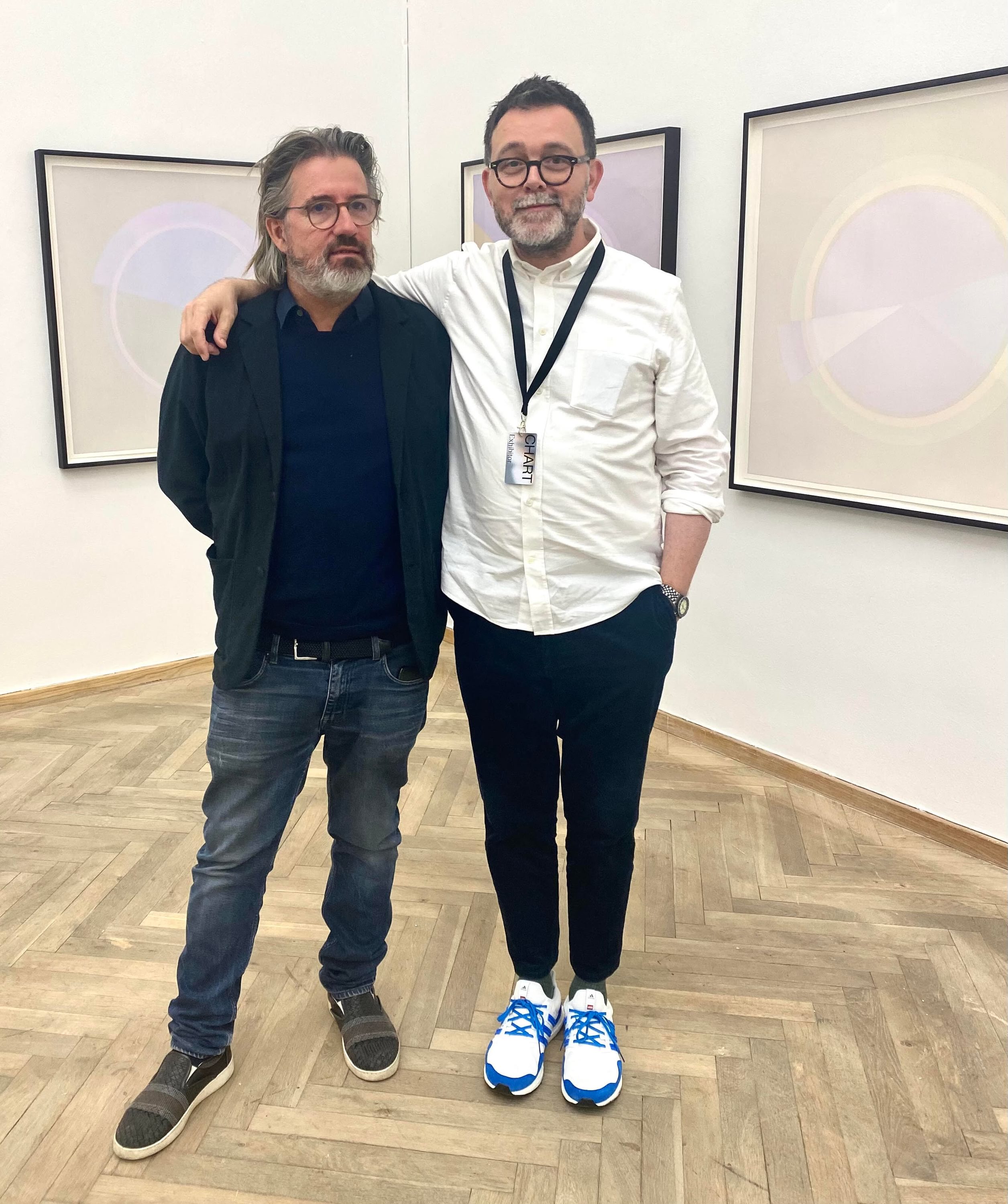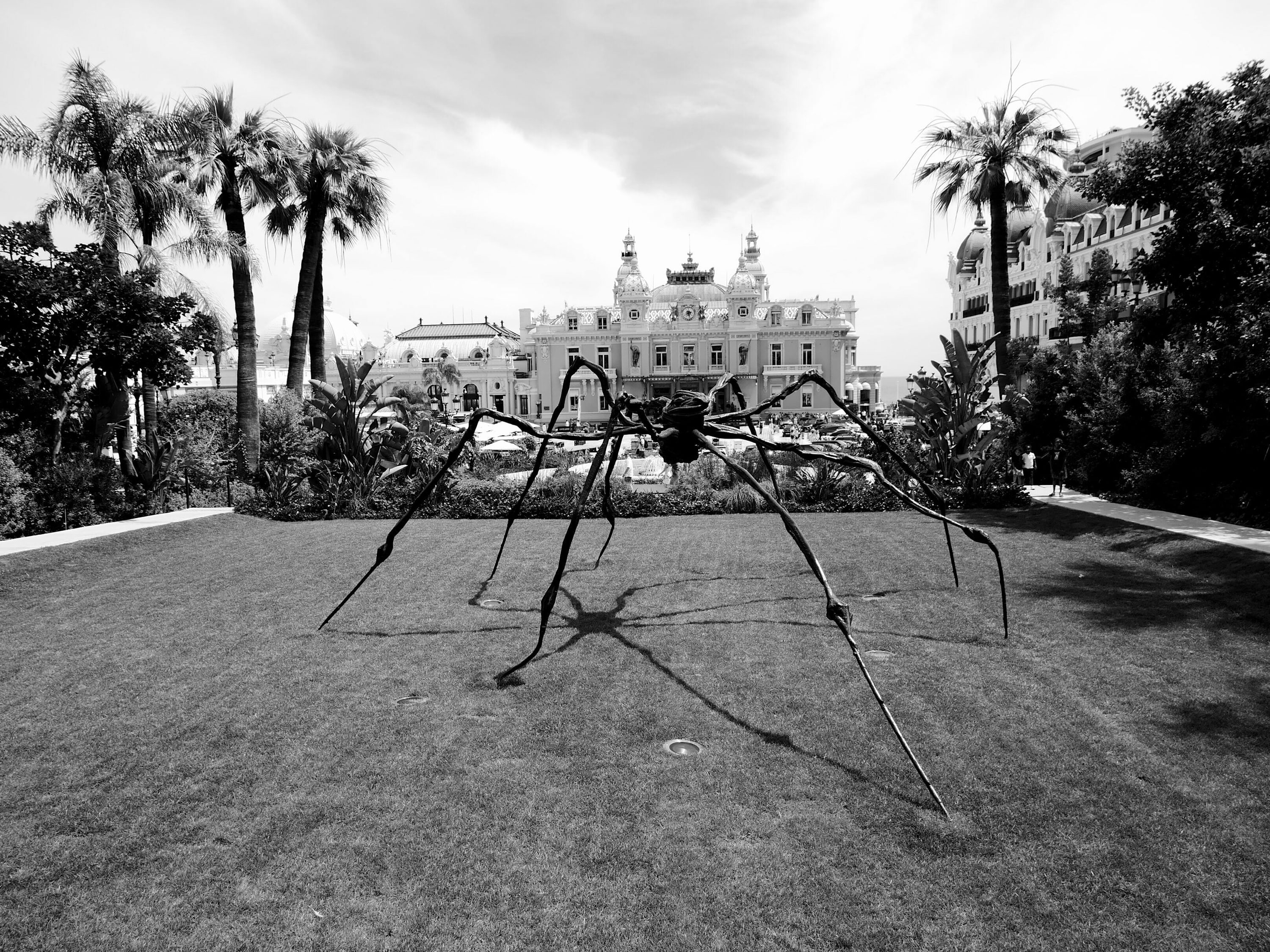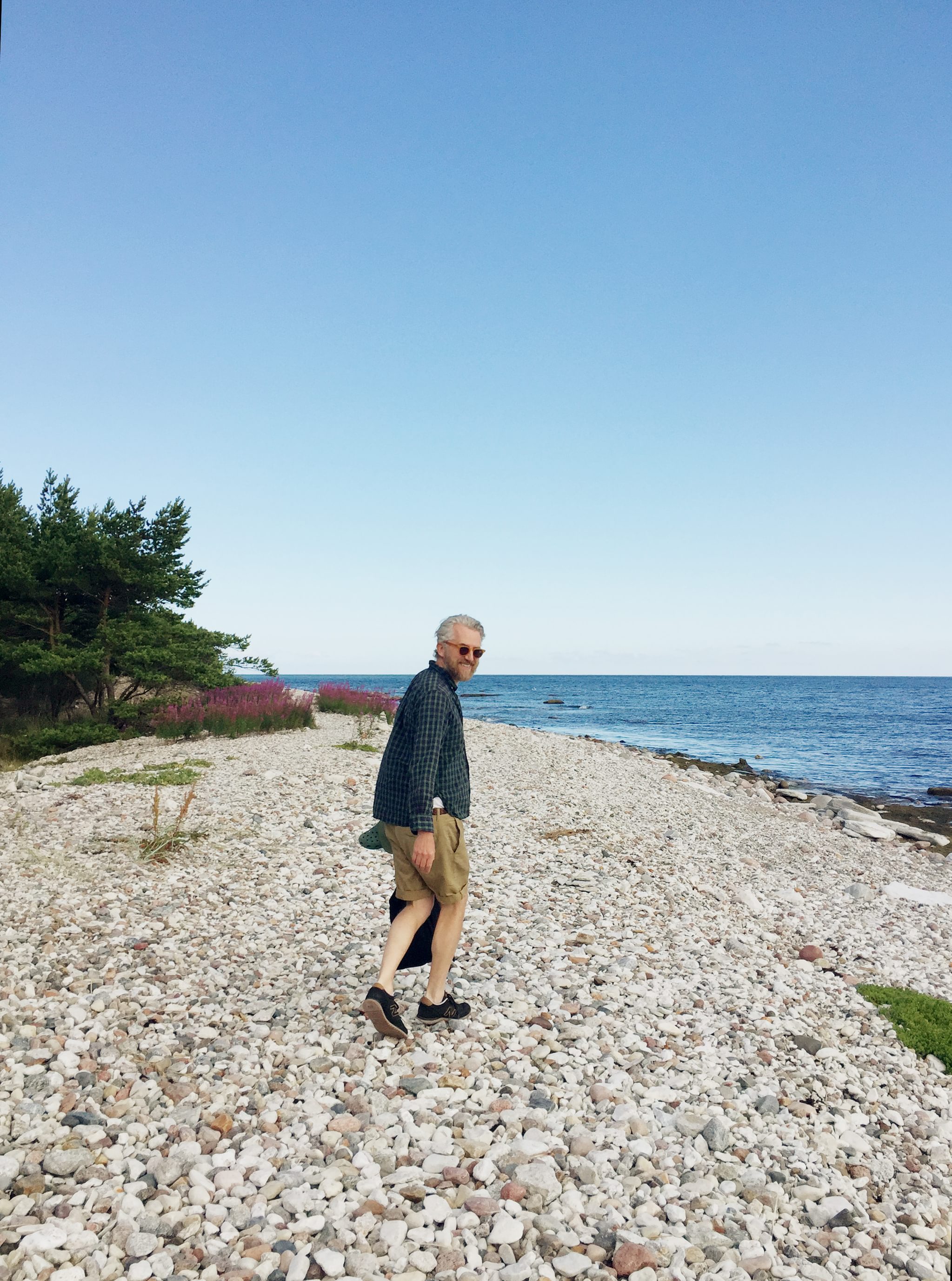
Photo of Magnus Karlsson
Courtesy of Galleri Magnus Karlsson
Traditionally dealers / gallerists came from the same social group as the collectors. Recently there has been a shift towards coming from the artists' side. Where would you say you started?
I started very young and very enthusiastically in a small city. I was engaged in work at a local TV station and made short films. We also arranged an amateur film festival which I think was important for me.
Many of my friends were struggling young actors, musicians and artists, or at least wanted to be. I opened my business trying to make a living as a graphic designer. One room was my office, the rest of the space became a gallery. I had no idea that this path would come to define my life. Those first steps are now more than 30 years ago.
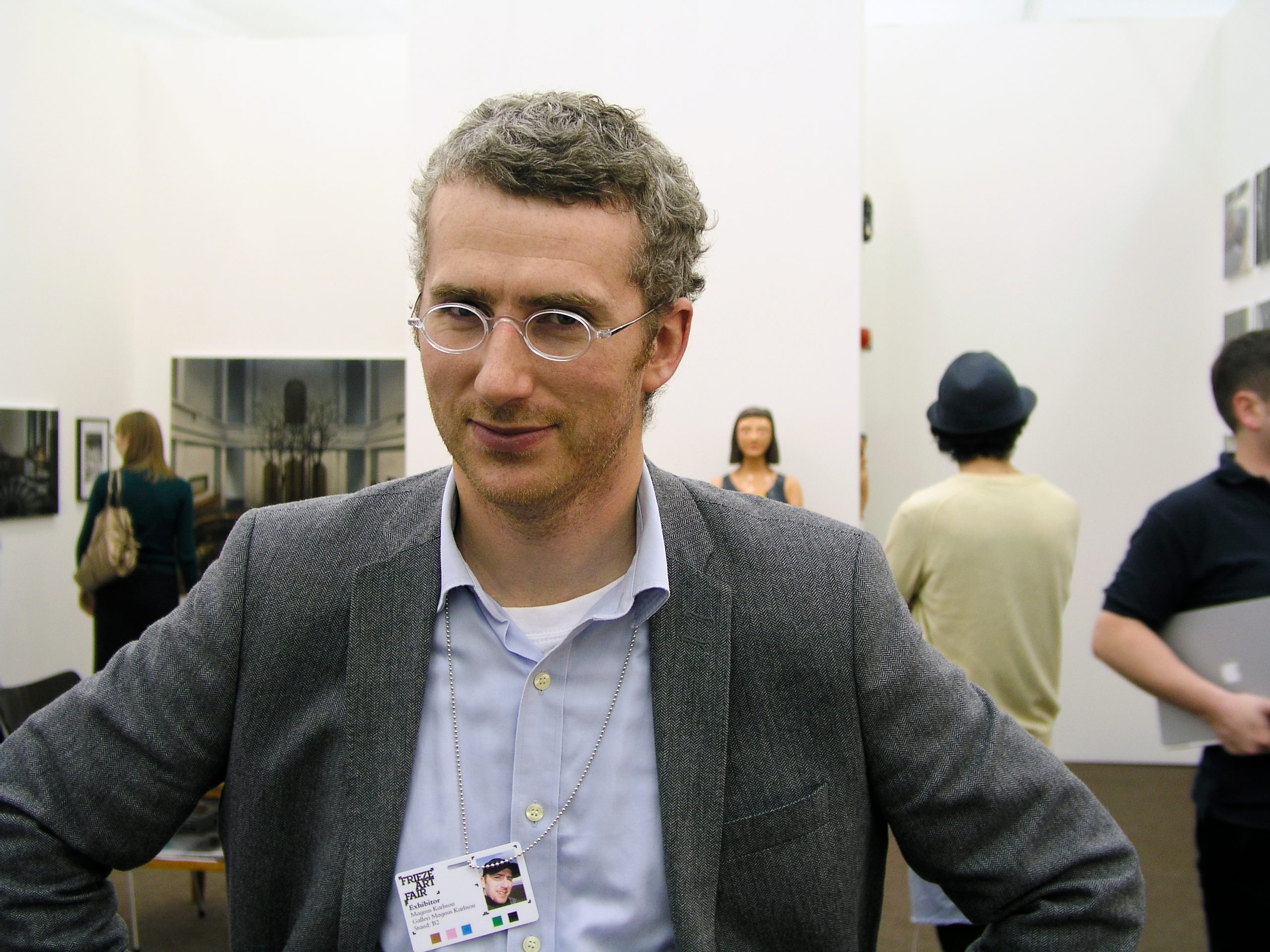
Magnus Karlsson at Frieze London, 2005
Courtesy of Galleri Magnus Karlsson
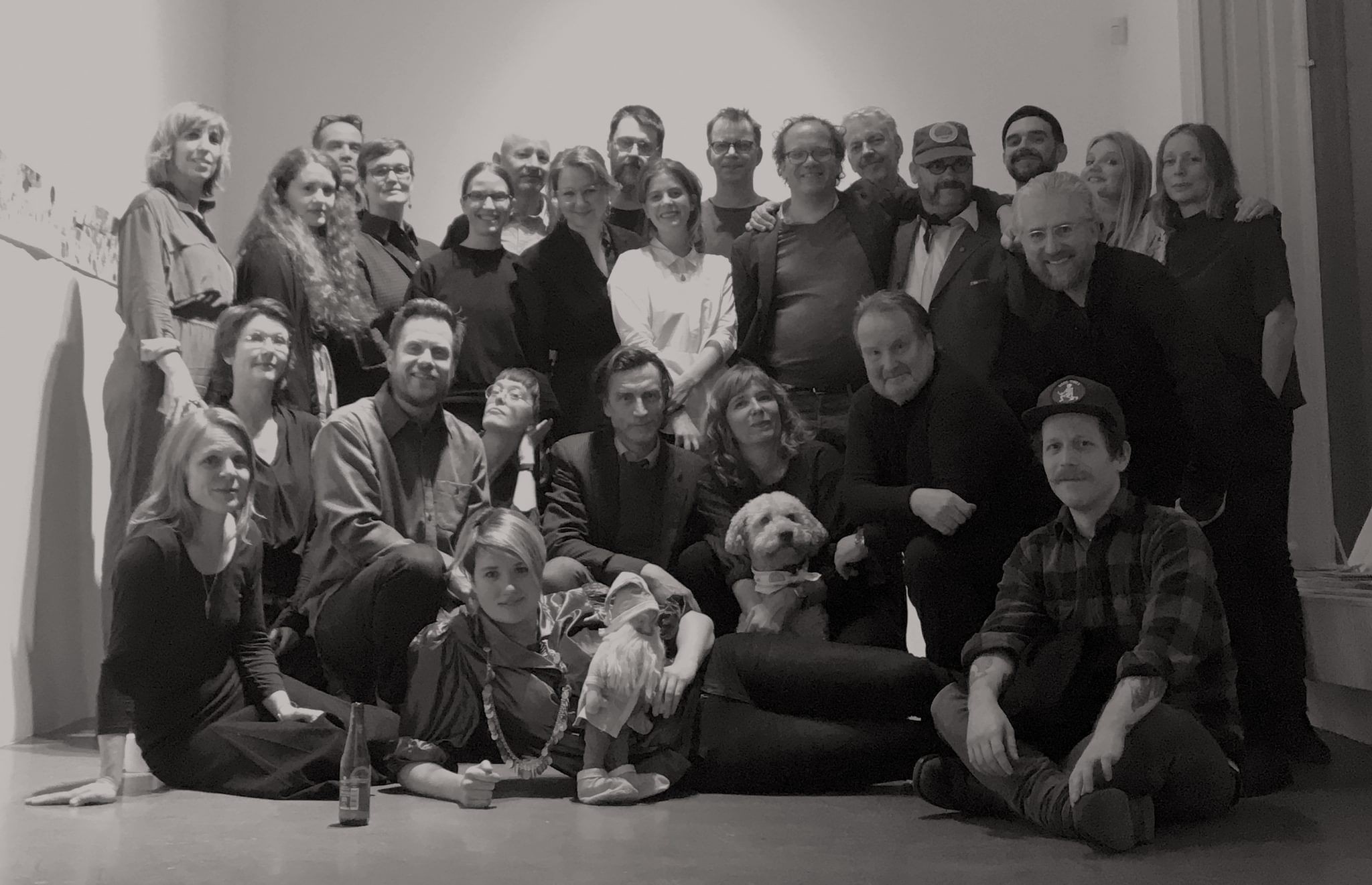
Galleri Magnus Karlsson, artists and staff, 2017
Courtesy of Galleri Magnus Karlsson
You walk into the packed dining room of the restaurant at Kunsthalle Basel the night of the opening of ART Basel. There are two large tables: one full of artists, one full of collectors. You can choose one table for the evening. Where do you sit and why?
I rarely find myself in this situation, but if so, I would probably sit with the artists. However I think it is interesting to create a social platform (a gallery) where these two worlds meet.
I work for the artist, not for the collector, but I try to arrange a situation where they can interact. Generally I want to spread art to an audience that is as wide as possible, to make it an essential part of our society. I think at this point art becomes even more important for the collector as well.
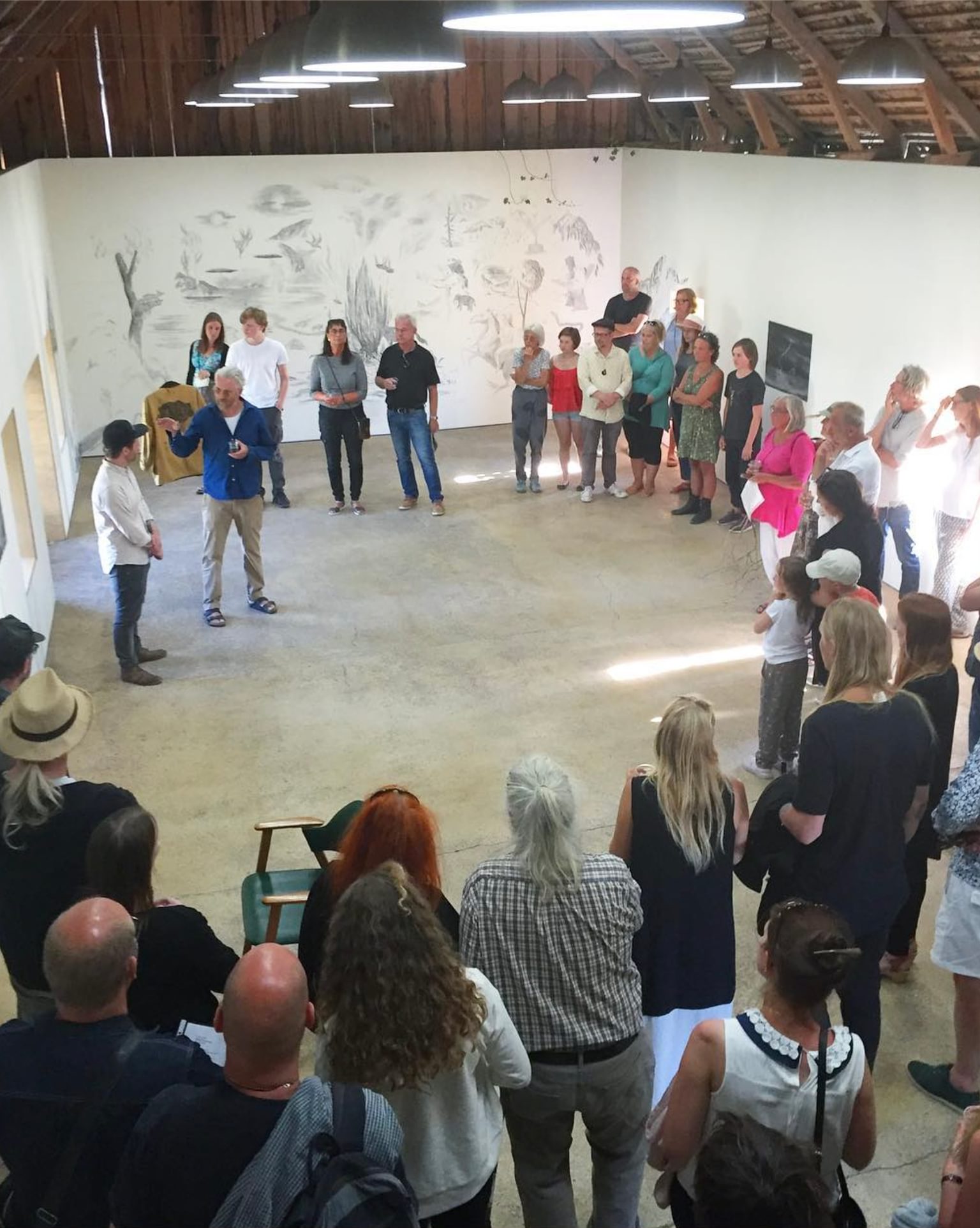
Opening at Hellvi Kännungs, Gotland, with Jeff Olsson, 2017
Courtesy of Galleri Magnus Karlsson
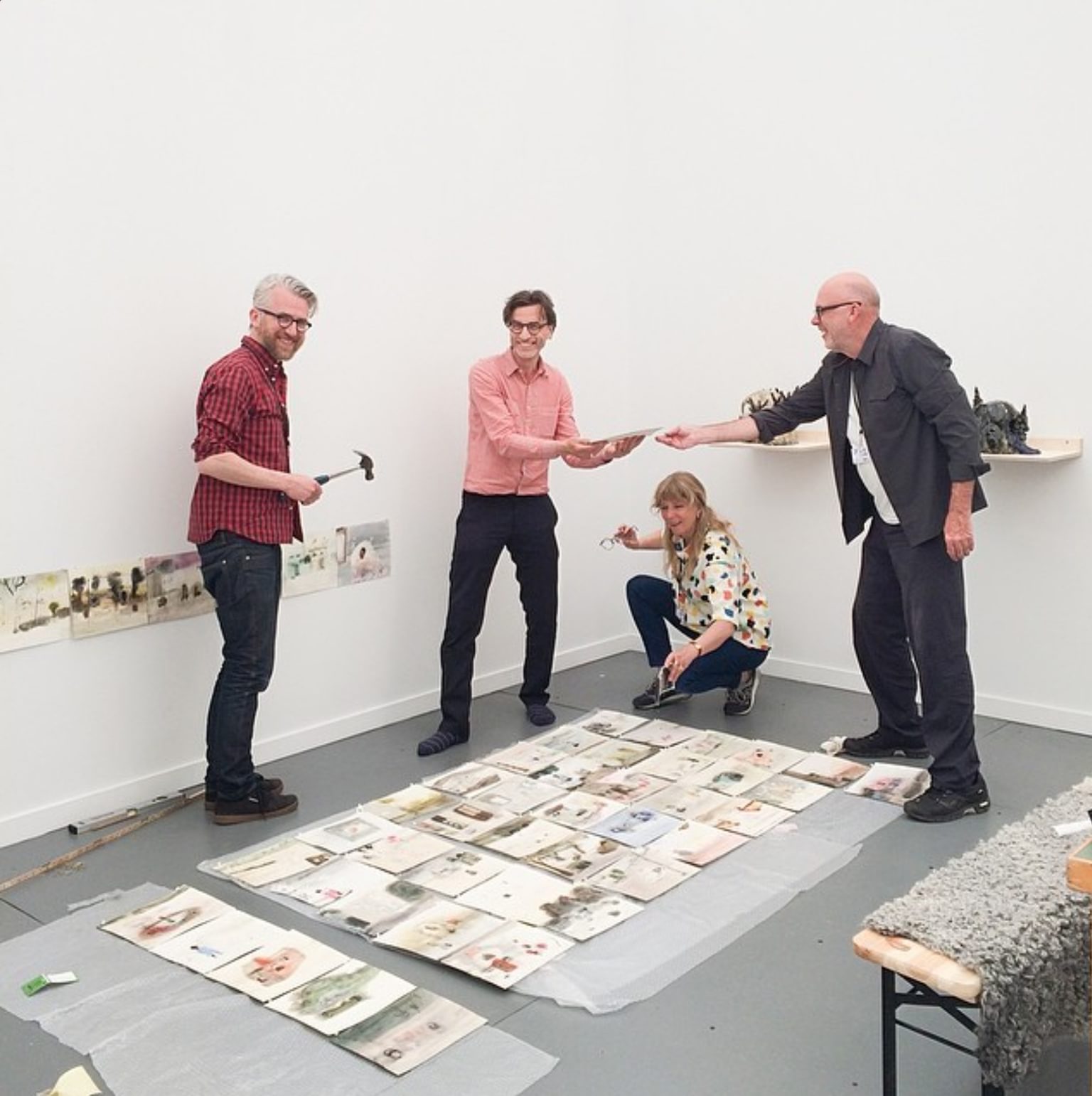
Installation at Frieze New York 2014, Magnus Karlsson, Jockum Nordström, Mamma Andersson and Dan Wolgers
Courtesy of Galleri Magnus Karlsson
What are the ethics of your job? Have they changed since you started?
I try to follow my heart and never the money, choosing the collaborations that I’m personally interested and engaged in.
Of course I have a responsibility towards the artists and maybe also the public, but I’m also constantly reminding myself that I can do whatever I want. The more established you get, you also get a heavy rucksack and lots of obligations and expectations. But in order to be a good gallerist I think it is very important to be a happy gallerist.
I want to follow my ideas and impulses and to be open for new challenges. For example, the gallery doesn’t have to solely concern itself with visual arts, it can be a place for all kinds of culture to melt together.
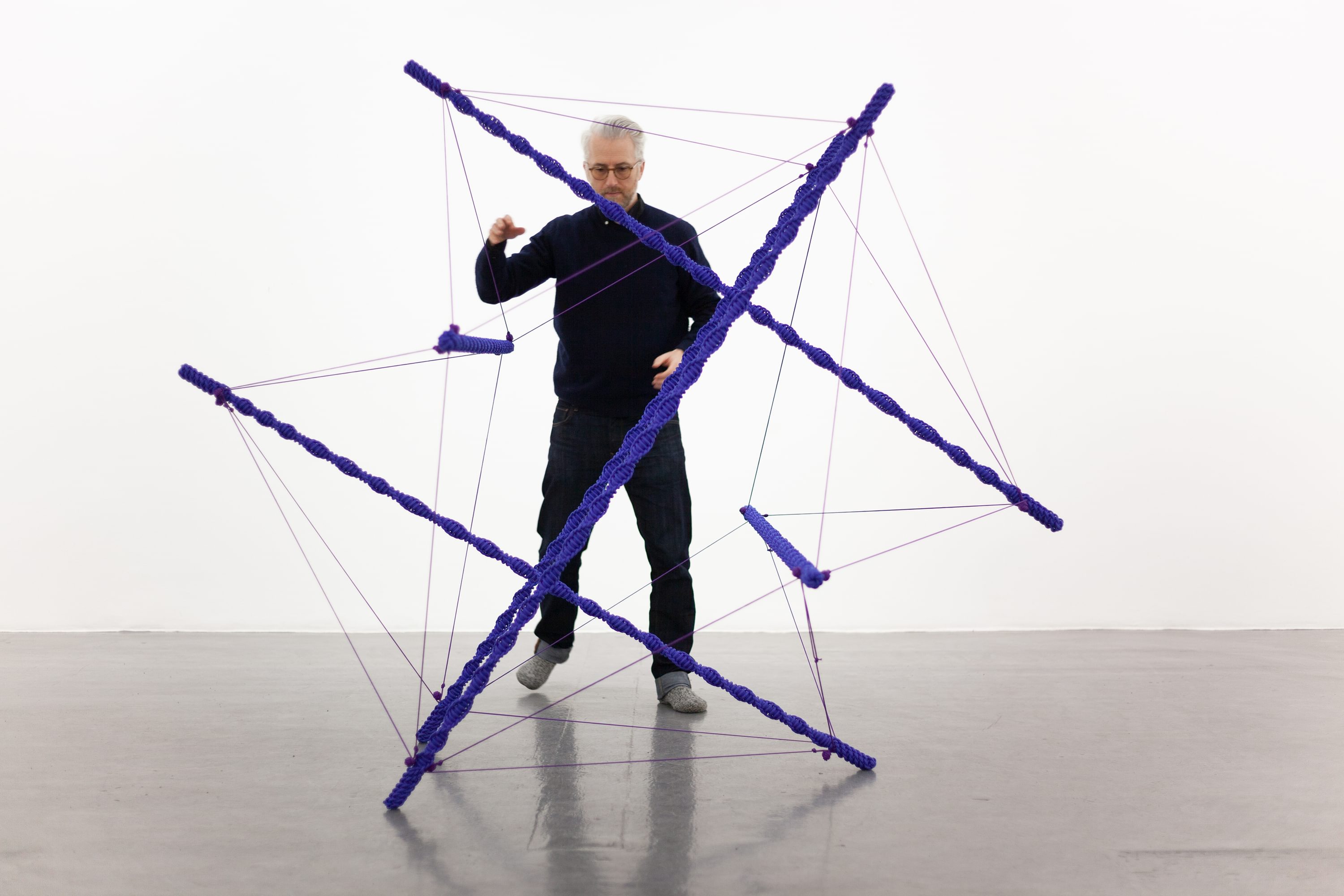
Magnus Karlsson with sculpture by Bella Rune, 2019
Courtesy of Galleri Magnus Karlsson
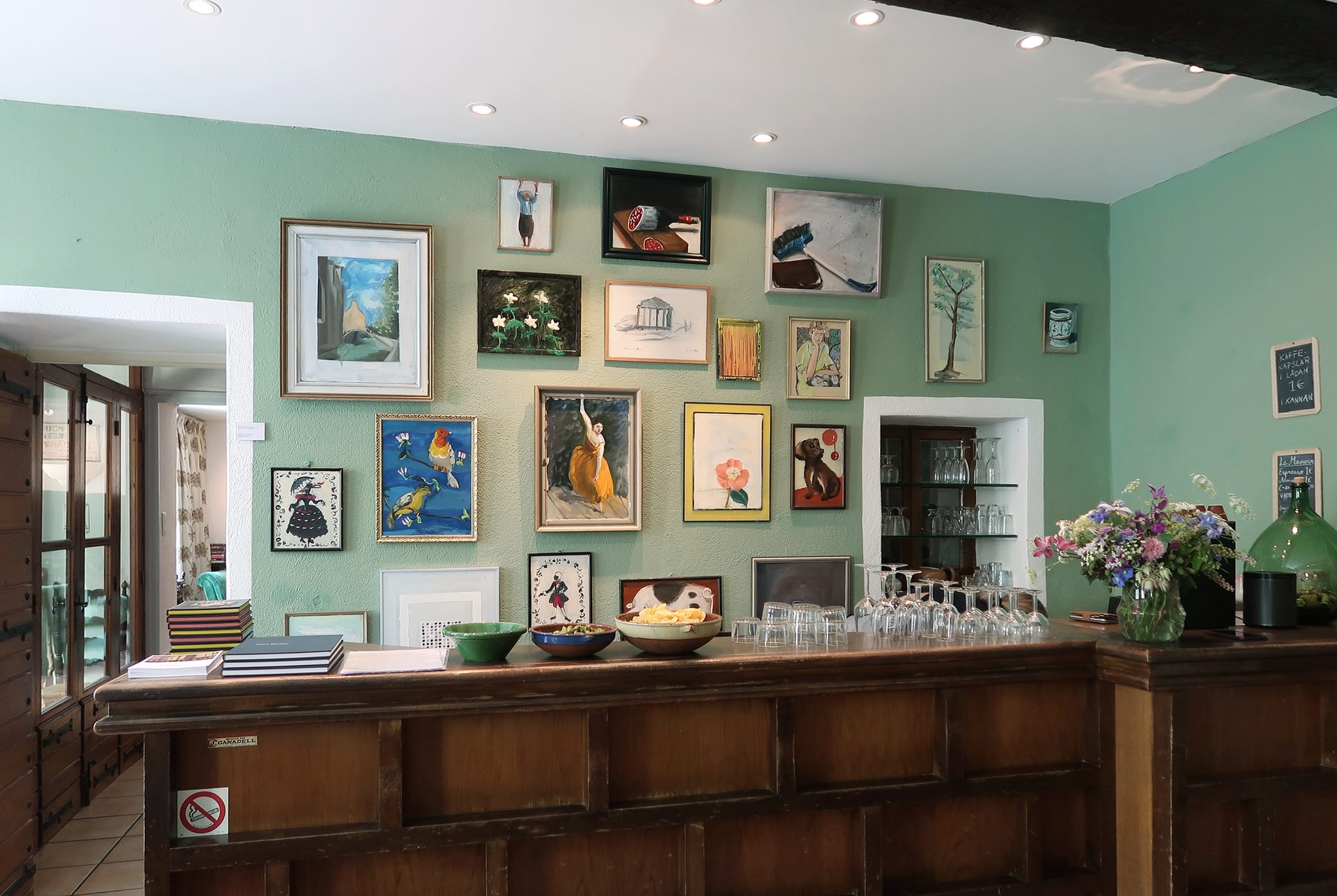
Installation View, Anna Bjerger at Le Manoir, Banyuls sur Mer, France 2018
Courtesy of Galleri Magnus Karlsson
The American comedian Chris Rock said, Michael Jackson is rich, the guy who signs his cheques is wealthy. Anthony D'Offay said, you can get rich selling art but you get wealthy buying art. Do you collect art? From the artists you represent? More widely?
I collect artworks from some of the artists we present at the gallery, but it is often hard to find the right circumstances. I never buy the ’best’ work from my own exhibitions, but sometimes the timing and the work is right.
I’m also interested in some specific artists from the past that I follow on the secondary market. They are kind of forgotten artists that I think deserved greater recognition.
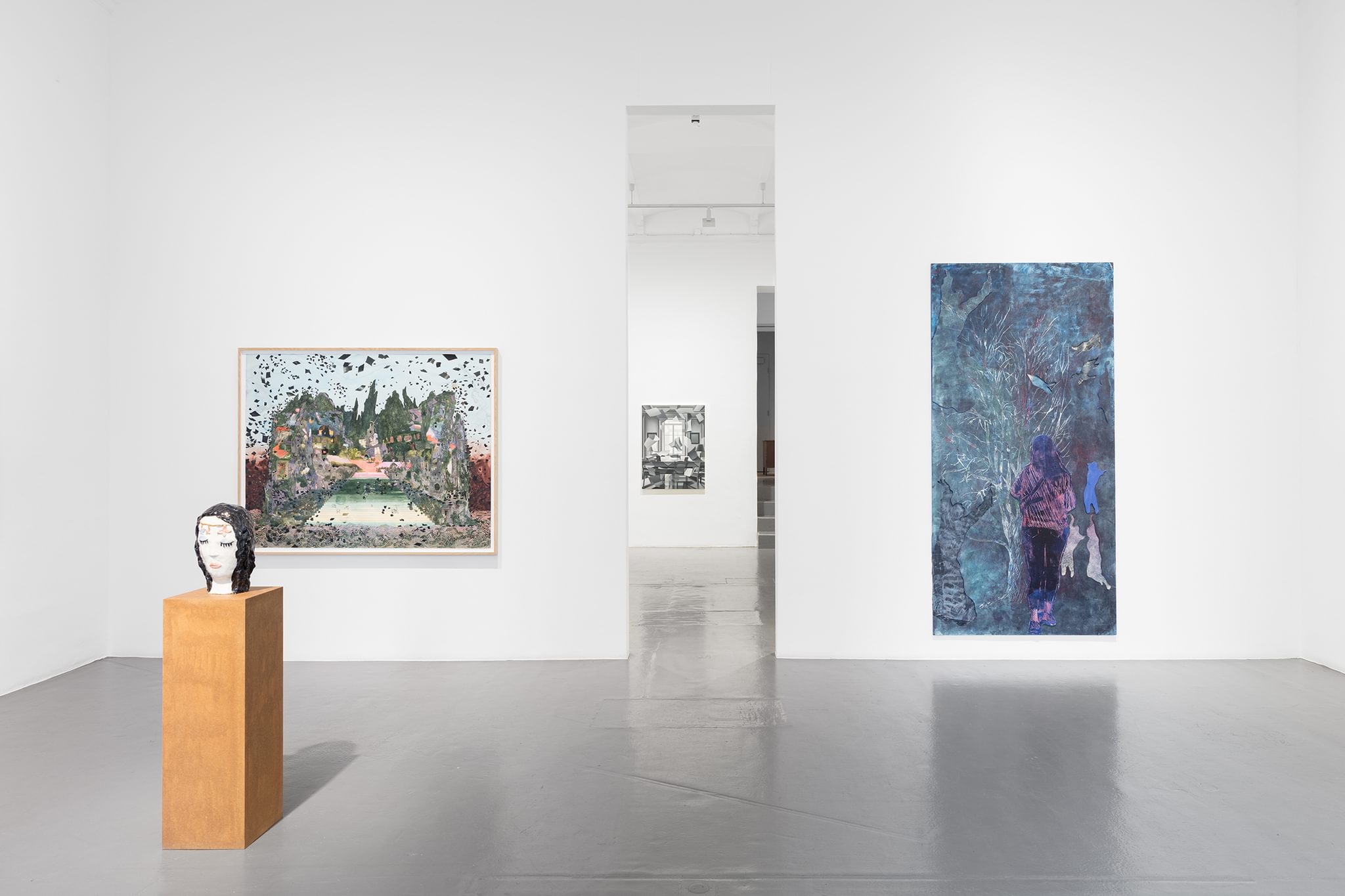
Installation view, Källan, The Spring, Galleri Magnus Karlsson, Stockholm, June 2021
Courtesy of Galleri Magnus Karlsson

David Risley is an artist. He ran David Risley Gallery, in London (2002-2010) and Copenhagen (2010-2018). He was founding Co-curator of Bloomberg Space, London (2002-2005), Co-founder of Zoo Art Fair, London (2004), and Co-founder and Co-owner of CHART. He continues to write, curate, and develop projects with artists. He is developing a sustainability project for public-facing institutions.
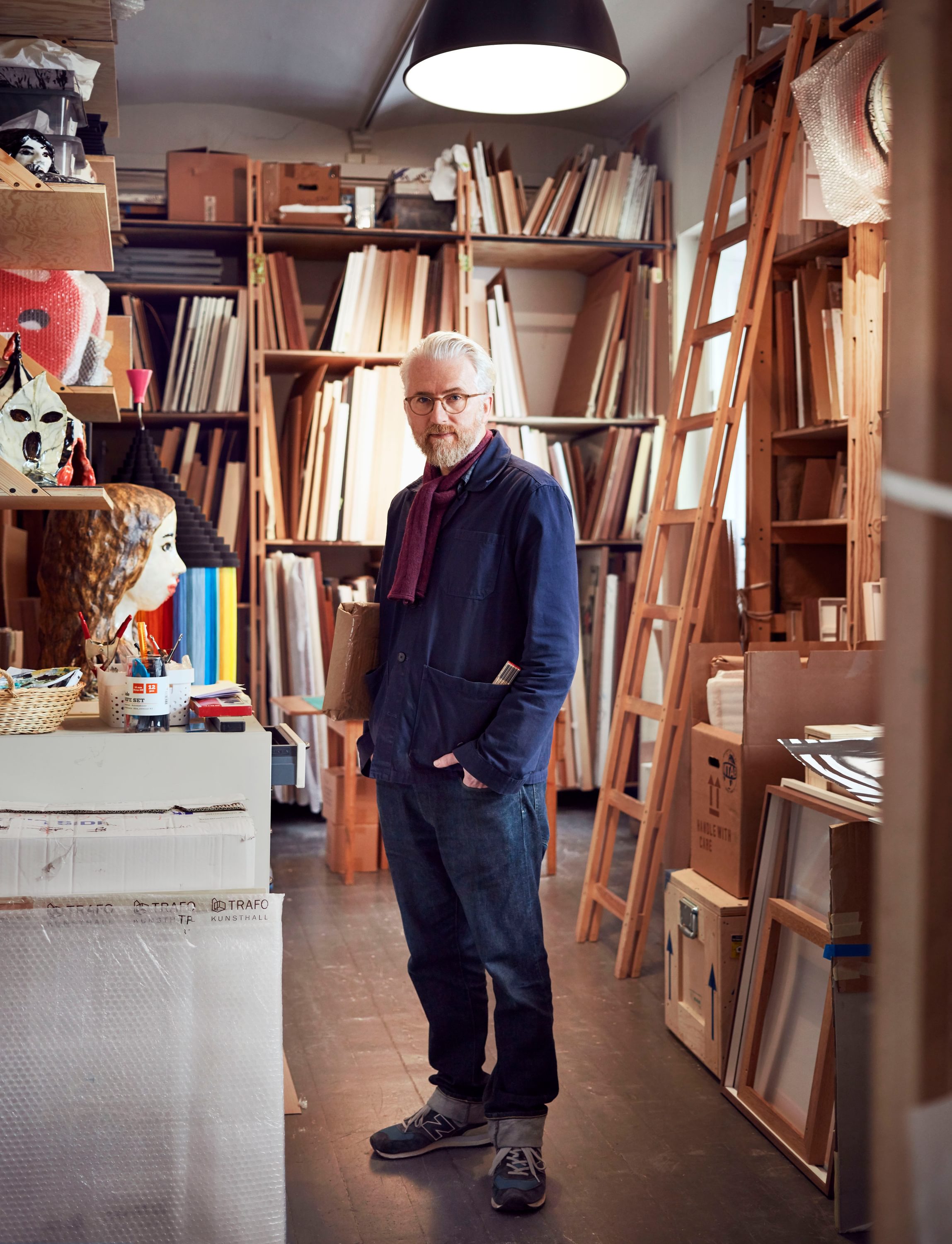
Magnus Karlsson founded his eponymous gallery in 1990 in Västerås. In 1997 the gallery moved to Stockholm and now has its location on the ground floor of the Royal Academy of Fine Arts. Over the years the gallery has worked closely with artists on a long-term basis, producing exhibitions, attending fairs and realising special projects both in Sweden and internationally.

